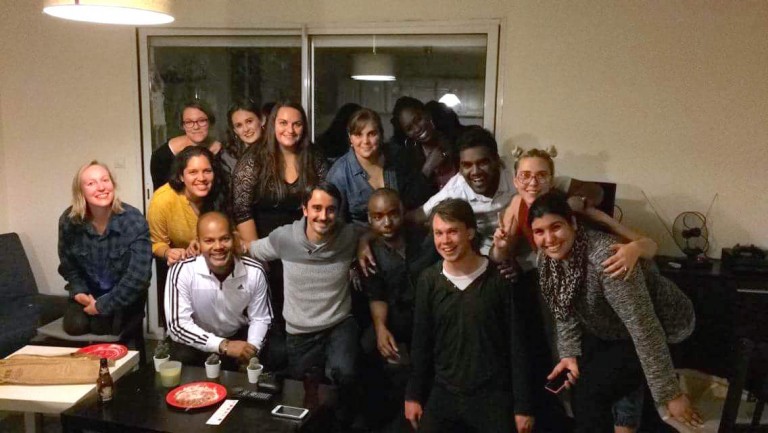- Apply
- Visit
- Request Info
- Give
Published on November 18, 2016
Teaching in France: The Value of International Experiences
Over the summer, I was excited to find out that I had been accepted to the Teaching Assistant Program in France (TAPIF) in the Academie de Lille, which is the education district of France’s northernmost province, Nord-Pas-de-Calais. As I had always intended to take a gap year before graduate school, I was very excited for this opportunity to live in another country, learn the language, and get to know the community around me. I have not been placed in Lille, the city center of the north, but rather, in a really small town, Beuvry, which is about forty minutes outside the city by train. It is situated next to Bethune, which is a slightly larger town, as far as the north is concerned. This area of the north shares many characteristics with the post-industrial old mill towns of New England, including Willimantic. The area’s prime industry used to be mining. Today, all the mines have closed, but there is little alternative economic interest in the cloudy north and these small town struggle to have enough jobs and bring in various businesses. However, unlike New England, the immigrant populations are rather small, though they most certainly are growing.
I have found the people in the area to be kinder and friendlier than my experiences when I studied in Paris, and of course, far far better than all of the American stereotypes about the French. Though, of course, there are some perceptions that are not entirely off. Baguettes are a daily necessity here, I will have four vacation over my seven months staying here, and I have been handed a glass of wine in the teachers’ lounge more than once. I am very grateful with how patient I find most people to be as I stumble through a conversation in French and living in the north has made it more necessary to speak French than when I lived in Paris. Between the teachers and my school and my housemates, I am forced to try and it has already lead to improvement even if my accent is horrific.

It was certainly interesting to be here for the US election. My teachers are extremely informed about American politics and my French high school students often know more than their average American peer. Despite having an extreme right of their own, talking about politics with French friends and teachers usually ends in a conversation that is extremely bias towards the American left. Honestly, I think this is because, having a completely different left to right spectrum… the American right is simply difficult for them to understand. I often find myself trying to explain the history and characteristics of the United States that has resulted in the spectrum that we have. I think that they are particularly curious given Brexit and the rise of conservatism in their own country. In many ways, I think I have learned a great deal about American politics by getting to look at through the eyes of foreigners and by having to try to explain our system to them.
This is also true of the other language assistants that live in Bethune. Though there are other Americans, I am the only one from not just New England, but also from the east coast. Despite always knowing that the US is very different depending on the region, it is interesting to see those differences at play. It has definitely made me want to experience more of my own country and has also made me appreciate some of my experiences that are distinctly New England. However, there are also English language assistants from Canada, Britain and Australia, as well as Spanish language assistants from Latin American countries, the two I see the most are Mexican and Venezuelan. Besides learning French culture and French experiences, I also get the experiences of perspectives of those from other countries as well. When all of the assistants and some of our French housemates get together for dinner… or meet at the bar… it often becomes a trilingual event.
Out of all the assistants I know, I am the only person who studied political science at university. Most are studying languages, a few languages and history. Some even had jobs as language teachers where they come from. Teaching English to French teenagers does not necessarily relate directly to my political science career goals. I get asked all the time why I wanted to do this. However, I think that the experience as a whole is invaluable to my overall goals. Besides learning another language, I also have the opportunity to build friendships and have conversations that teach me new things, not only about other countries, but also about my own. I think it is an important part of studying political science to be exposed to all sorts of other perspectives and allow them to challenge your own.
Written by Sabreena Croteau

